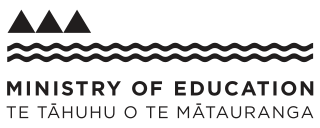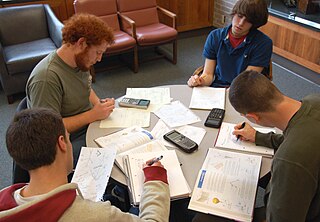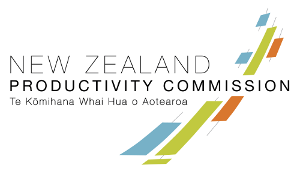External links
| | This article about an organisation in New Zealand is a stub. You can help Wikipedia by expanding it. |
The New Zealand Council for Educational Research (NZCER) is an independent, educational research organisation that provides educators, students, parents, policy makers, and the public with innovative and independent research, analysis, and advice. Established in 1934 through grants from the Carnegie Corporation, it became a statutory body in 1945 and now operates under the NZCER Act 1972 (and amendments). It is not formally attached to any government department, university, or other educational organisation.
Under Section 13 of the NZCER Act, the organisation is required to:
NZCER conducts educational research and evaluation, and publishes reports. It provides information and advice to those involved in education, including policy makers, teachers, parents, advisers, and researchers.
Jane Gilbert (New Zealand) – New Zealand educator and Chief Researcher for the NZCER
Alternative education encompasses many pedagogical approaches differing from mainstream pedagogy. Such alternative learning environments may be found within state, charter, and independent schools as well as home-based learning environments. Many educational alternatives emphasize small class sizes, close relationships between students and teachers and a sense of community.

The Ministry of Education is the public service department of New Zealand charged with overseeing the New Zealand education system.

The Geographical Association (GA) is a United Kingdom-based subject association whose objects are the advancement of education for the public benefit by furthering geographical knowledge and understanding, through the promotion and dissemination of good practice in geographical teaching and learning. It is a registered charity and is wholly independent of state aid.

Open educational resources (OER) are freely accessible, openly licensed text, media, and other digital assets that are useful for teaching, learning, and assessing as well as for research purposes.
In England, Wales and Northern Ireland, school governors are the overseers of a school. In state schools they have three main functions: of:

Student voice is "any expression of any learner regarding anything related to education" and describes "the distinct perspectives and actions of young people throughout schools focused on education. Tech educator Dennis Harper writes, "Student voice is giving students the ability to influence learning to include policies, programs, contexts and principles."
The Australian Intelligence Community (AIC) and the National Intelligence Community (NIC) or National Security Community of the Australian Government are the collectives of statutory intelligence agencies, policy departments, and other government agencies concerned with protecting and advancing the national security and national interests of the Commonwealth of Australia. The intelligence and security agencies of the Australian Government have evolved since the Second World War and the Cold War and saw transformation and expansion during the Global War on Terrorism with military deployments in Afghanistan, Iraq and against ISIS in Syria. Key international and national security issues for the Australian Intelligence Community include terrorism and violent extremism, cybersecurity, transnational crime, the rise of China, and Pacific regional security.

The Royal Society Te Apārangi is an independent, statutory not-for-profit body in New Zealand providing funding and policy advice in the fields of sciences and the humanities.

Teacher education TE (TE) or teacher training refers to the policies, procedures, and provision designed to equip (prospective) teachers with the knowledge, attitudes, behaviors, and skills they require to perform their tasks effectively in the classroom, school, and wider community. The professionals who engage in training the prospective teachers are called teacher educators.
The Cambridge Primary Review (CPR), following a lengthy period of consultation and planning, was launched in October 2006 as a fully independent enquiry into the condition and future of primary education in England. The Review, directed by Professor Robin Alexander, has been supported since its inception by grants from the Esmée Fairbairn Foundation. The scope of the Review and the depth of its evidence have made it the most comprehensive enquiry into English primary education since the Plowden Report of 1967. Between October 2007 and February 2009 the Review published 31 interim reports, including 28 surveys of published research, 39 briefings, 14 media releases and several newspaper articles. The Review's 608-page final report Children, their World, their Education: final report and recommendations of the Cambridge Primary Review was published on 16 October 2009, together with an 850-page companion volume, The Cambridge Primary Review Research Surveys. Both books are published by Routledge.
Gingerbread is a registered charity supporting one-parent families in England and Wales by providing advice, online information, support groups and training. The National Council for the Unmarried Mother and her Child, founded in 1918, changed its name to the National Council for One Parent Families in the early 1970s and in 2007 merged with Gingerbread, a self-help organisation founded in 1970. After briefly being known as "One Parent Families|Gingerbread", it relaunched as Gingerbread in January 2009.

Angus Hikairo Macfarlane is a New Zealand academic and professor at the University of Canterbury.

Test preparation or exam preparation is an educational course, tutoring service, educational material, or a learning tool designed to increase students' performance on standardized tests. Examples of these tests include entrance examinations used for admissions to institutions of higher education, such as college, business school, law school, medical school, BMAT, UKCAT and GAMSAT and graduate school and qualifying examinations for admission to gifted education programs.
Evidence-based education (EBE) is the principle that education practices should be based on the best available scientific evidence, rather than tradition, personal judgement, or other influences. Evidence-based education is related to evidence-based teaching, evidence-based learning, and school effectiveness research. For example, research has shown that spaced repetition "leads to more robust memory formation than does massed training, which involves short or no intervals".
The Office of the Australian Information Commissioner (OAIC), known until 2010 as the Office of the Australian Privacy Commissioner is an independent Australian Government agency, acting as the national data protection authority for Australia, established under the Australian Information Commissioner Act 2010, headed by the Australian Information Commissioner.

The New Zealand Productivity Commission is an independent Crown entity whose purpose is "to provide advice to the Government on improving productivity in a way that is directed to supporting the overall wellbeing of New Zealanders, having regard to a wide range of communities of interest and population groups in New Zealand society.”

Homeschooling in South Africa had been illegal, until it was recognized in 1996 under the South African School Legislation, since then it has grown significantly.
The Data Quality Campaign (DQC) is a nonpartisan, nonprofit advocacy organization launched in the United States in 2005 to improve the quality, accessibility and use of data in education.
The Scottish Council of Independent Schools (SCIS) is a registered Scottish charity which represents the independent school sector in Scotland. Its membership includes mainstream fee-paying independent schools and a range of schools for young people with complex additional support needs.

Educational management refers to the administration of the education system in which a group combines human and material resources to supervise, plan, strategise, and implement structures to execute an education system. Education is the equipping of knowledge, skills, values, beliefs, habits, and attitudes with learning experiences. The education system is an ecosystem of professionals in educational institutions, such as government ministries, unions, statutory boards, agencies, and schools. The education system consists of political heads, principals, teaching staff, non-teaching staff, administrative personnel and other educational professionals working together to enrich and enhance. At all levels of the educational ecosystem, management is required; management involves the planning, organising, implementation, review, evaluation, and integration of an institution.